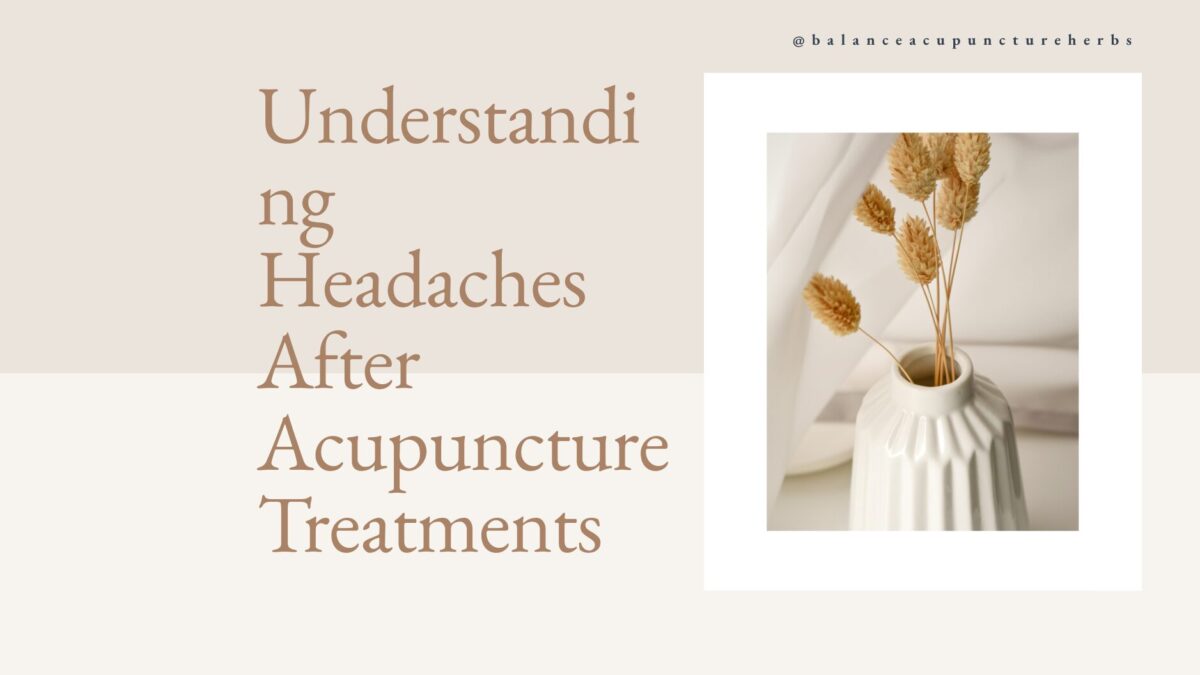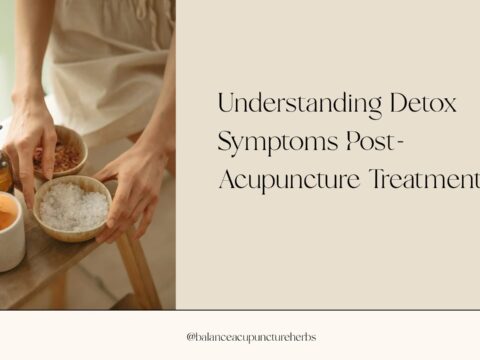
Detox Symptoms After Acupuncture
October 29, 2024
Sciatica Treatment: Acupuncture Needle Guide
November 3, 2024|
Getting your Trinity Audio player ready...
|
Understanding Headaches After Acupuncture Treatments
Acupuncture is a traditional Chinese medicine practice that has gained global recognition. It’s known for its potential to alleviate pain, stress, and various health conditions.
However, some individuals report experiencing headaches after acupuncture treatments. This raises questions about the side effects of this ancient therapy.
In this article, we delve into the phenomenon of headaches after acupuncture. We aim to provide a comprehensive understanding of why this occurs, backed by expert opinions and scientific research.
We’ll explore both direct and indirect causes of these headaches. We’ll also discuss how to differentiate between normal and severe headaches, and when to consult a healthcare provider.
Moreover, we’ll touch on the role of acupuncture in treating headaches and migraines. We’ll also discuss how to manage expectations and view acupuncture as part of a holistic approach to health.
“
Join us as we navigate the complexities of understanding headaches after acupuncture treatments.
What is Acupuncture?
Acupuncture is a key component of traditional Chinese medicine. It involves inserting thin needles into specific points on the body. This practice is designed to restore balance and flow of Qi, or energy, to promote healing and well-being.
Practitioners believe that these needles stimulate the body’s natural healing processes. Acupuncture is commonly used to treat pain, stress, and other health conditions. The technique is widely regarded as safe when performed by qualified professionals. As an alternative therapy, it holds a unique place in both traditional and modern medical practices.

Acupuncture side effects
Acupuncture side effects can vary from person to person, and while headaches are one of the more commonly reported reactions, they are generally mild and temporary. Some individuals may experience headaches due to the release of endorphins and other neurochemicals during treatment, which can lead to a temporary imbalance in the body’s systems.
Additionally, the physical manipulation of the body and the insertion of needles can sometimes trigger a headache in those who are particularly sensitive. Understanding these potential side effects can help patients approach their acupuncture sessions with a more informed mindset, allowing them to better manage their expectations and experiences.
Common Reasons for Headaches After Acupuncture
Does acupuncture cause headaches? Experiencing a headache after acupuncture can be puzzling. While it’s not overly common, it does occur. Understanding why these headaches happen can help ease concerns and improve experiences with acupuncture treatments.
Several factors can contribute to post-acupuncture headaches. Some might be directly related to the procedure itself. Others may stem from the body’s reactions or existing conditions. The following list outlines some common reasons:
- Needle placement or depth of insertion
- Dehydration or low blood sugar
- Release of tension causing temporary discomfort
- General stress response from the body
- Individual sensitivity to treatment
It’s important to know that headaches after acupuncture are generally mild and short-lived. Awareness of these potential side effects and causes can help patients prepare. Knowing what to expect allows for a better adjustment to acupuncture sessions and promotes proactive measures to alleviate symptoms.
Direct vs Indirect Causes of Post-Acupuncture Headaches
Headaches after acupuncture can originate from both direct and indirect causes. Direct causes refer to those that arise from the treatment itself. Needle placement, the depth of insertion, or sensitivity to the needles may trigger discomfort. These direct effects are often due to slight imbalances in how the treatment interacts with the body.
Indirect causes are not linked to the acupuncture procedure directly. Instead, they might result from related factors such as dehydration, low blood sugar, or the release of stored tension. The body’s natural healing response can sometimes lead to temporary headaches as well. By identifying these indirect causes, patients can better manage any discomfort they experience.
How to Differentiate Between Normal and Severe Headaches
Understanding the severity of headaches after acupuncture is important. Normal headaches are usually mild and go away quickly. These may feel like slight pressure or a dull ache, which eases with simple measures like hydration or rest.
Severe headaches, however, are more intense and persistent. They often come with other symptoms such as nausea, dizziness, or severe pain that disrupts daily activities. If these symptoms appear, it is crucial to seek guidance from a healthcare provider. Identifying the nature of your headache helps in determining the right course of action, ensuring both safety and comfort.
Preventative Measures to Avoid Headaches After Treatments
Taking steps to prevent headaches after acupuncture can enhance your experience. Simple habits can make a difference. Drinking sufficient water before and after your session can help keep headaches at bay. Hydration supports overall well-being and can reduce the risk of headaches.
Another key measure is to have a light meal before your treatment. Low blood sugar can sometimes trigger headaches, so a small snack can help. A balanced intake of nutrients ensures your body has the energy needed for a healing session.
Incorporating relaxation techniques post-treatment can also be beneficial. Consider activities like deep breathing or gentle stretching. These practices help ease tension and promote relaxation. They allow your body to adjust smoothly to the effects of acupuncture.
Here’s a quick list to prevent post-acupuncture headaches:
- Stay hydrated before and after the session.
- Have a light, nutritious meal before treatment.
- Practice relaxation techniques after acupuncture.
When to Consult a Healthcare Provider
Headaches after acupuncture are usually mild, but it’s crucial to know when to seek medical advice. Persistent or severe headaches should never be ignored. They might signify an underlying issue that needs professional attention.
If you have headaches that last over a day or come with other concerning symptoms, reach out to your healthcare provider.
It’s important to rule out any complications and ensure your treatment is appropriate. Your health and comfort should always be a priority during any form of therapy.
The Role of Acupuncture in Treating Headaches and Migraines
Acupuncture is not just for alleviating pain and stress. It has been increasingly used to address chronic headaches and migraines. Research shows that acupuncture can help reduce the frequency and severity of these conditions. The stimulation of specific points is believed to balance the body’s energy.
Many individuals have reported positive outcomes with acupuncture for migraines. These improvements can contribute to better quality of life. While acupuncture is not a standalone solution, it complements other therapies. It’s essential to work with a skilled acupuncturist to optimize results.
Managing Expectations: Acupuncture as a Holistic Approach
Acupuncture is part of a broader holistic approach to health. It works by addressing both physical and emotional imbalances in the body.
Acupuncture is not a quick fix. The effects may take time to manifest and often require multiple sessions. By being patient and consistent, the benefits can become more apparent.
Setting realistic expectations is vital for anyone considering acupuncture. Discuss your health goals and concerns with your acupuncturist. This open dialogue helps tailor the treatment to individual needs.
Understanding the holistic nature of acupuncture encourages a comprehensive view of health and wellness. This perspective enhances the overall treatment experience.
Conclusion: Balancing Benefits and Side Effects
Understanding the balance between acupuncture’s benefits and its potential side effects like headaches is essential. By staying informed and proactive, you can enhance the effectiveness of your treatment. Engage openly with your practitioner to ensure a beneficial acupuncture experience. This approach helps you make the most of this ancient therapy.
Read More:
90% of Headache is tension headaches.
Does poor sleeping posture cause a stiff neck?
Effective Chinese Medicine for Menopausal Women
Detox Symptoms After Acupuncture
How Often Should you get Acupuncture?
[wpseo_address show_state=”1″ show_country=”1″ show_phone=”1″ show_phone_2=”0″ show_fax=”0″ show_email=”0″ show_logo=”0″]
[wpseo_map max_number=”undefined” width=”400″ height=”300″ zoom=”-1″ map_style=”roadmap” scrollable=”1″ draggable=”1″ show_route=”0″ show_state=”0″ show_phone=”1″ show_phone_2=”0″ show_fax=”0″]





